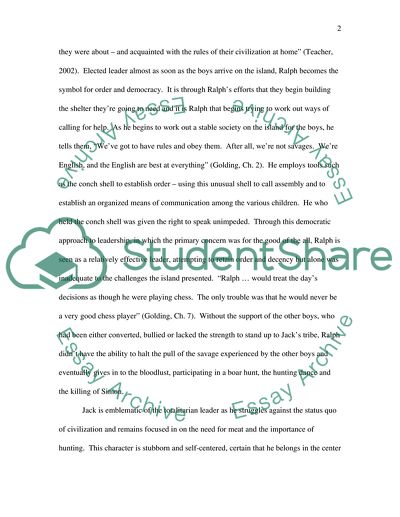Cite this document
(“Lord of the Flies: Civilization vs. Savagery Essay”, n.d.)
Retrieved from https://studentshare.org/literature/1543512-lord-of-the-flies-civilization-vs-savagery
Retrieved from https://studentshare.org/literature/1543512-lord-of-the-flies-civilization-vs-savagery
(Lord of the Flies: Civilization Vs. Savagery Essay)
https://studentshare.org/literature/1543512-lord-of-the-flies-civilization-vs-savagery.
https://studentshare.org/literature/1543512-lord-of-the-flies-civilization-vs-savagery.
“Lord of the Flies: Civilization Vs. Savagery Essay”, n.d. https://studentshare.org/literature/1543512-lord-of-the-flies-civilization-vs-savagery.


